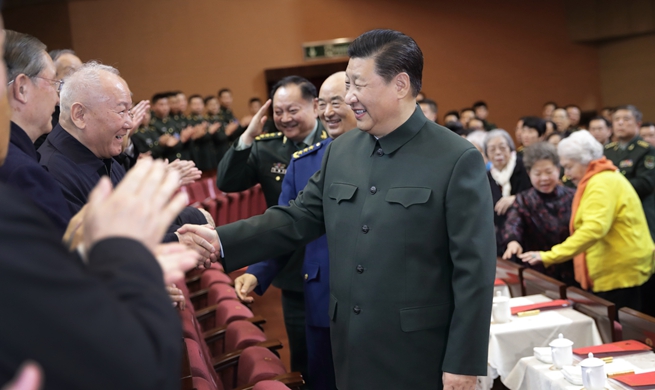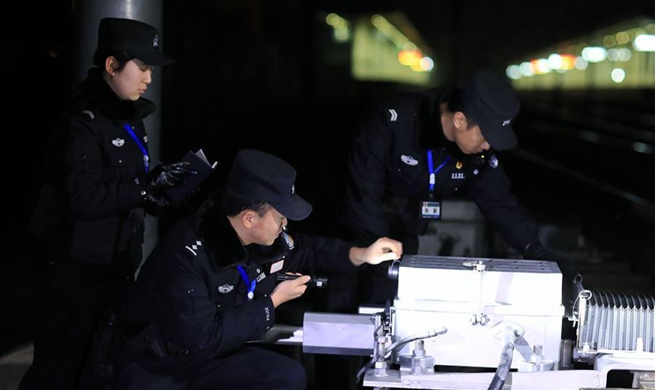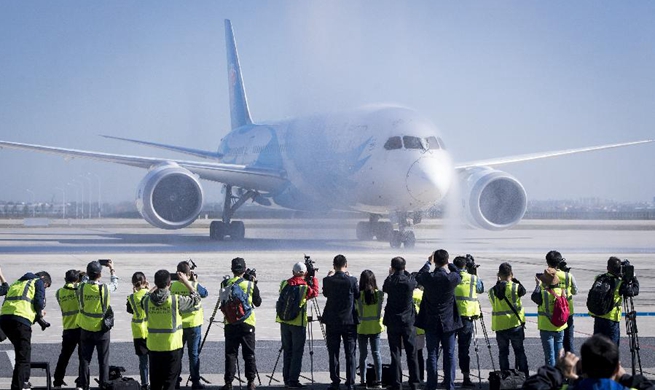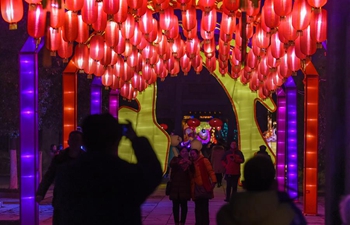by Julia Pierrepont III, Gao Shan
LOS ANGELES, Jan. 23 (Xinhua) -- "Listen to the shape of the piece, don't play it note by note," a piano master told her eager, young student. "Don't be afraid to use the pedal, it adds resonance and passion," she added pointing to her student's foot.
Her young Chinese student's nimble fingers flew through the passages of Liszt's Etude de Concert #2. Responding to the instruction, the student toed the pedal and added color and nuance to her next pass.
Eagerly watching this classic exchange are rows of piano teachers sitting in the elegantly designed, acoustically balanced recording studio in Ostin Music Center of University of California, Los Angeles (UCLA), which houses a state-of-the-art Yamaha DCFX Disklavier piano.
The master coaxing the student through her passages is Inna Faliks, renowned concert pianist, Yamaha artist, and Head of the UCLA Keyboard Department. She's no stranger to embracing "the new", having travelled extensively, touring, performing and teaching masterclasses in many countries around the world.
So what's so new about an age-old scene between mentor and student that has been going on for hundreds of years?
While Faliks sat at her piano on the UCLA campus, her student, Meng Xinyuan, is over 10,000 kilometers away in Beijing at the Central Conservatory of Music, linked through Yamaha's breakthrough Remote Lesson Technology.
It's the first time that U.S. and Chinese educational institutions were linked using Yamaha's Remote Lesson Technology. The Yamaha Disklavier is a unique instrument capable of transmitting highly nuanced performance data - the actual depth and speed of keystrokes and the subtle gradations of pedal movements - between similarly equipped pianos over the internet.
The technology enables top artists and educators to instruct students remotely using the internet-connected Disklavier, which mirrors two pianos that are far remote from each other, even in different countries.
Master teachers like Faliks can watch and listen to their students perform remotely on a large viewing screen, while their piano mirrors their student's keystrokes and pedal work exactly. These state-of-the-art technical advances enable teachers to observe and comment on the subtle nuances of their student's performance from half a world away.
"It's a gamechanger for piano pedagogy and long distance education," observed Bonnie Barnett, Head of Yamaha's Division of Artist's Services, who flew in from New York headquarters to attend the historic demonstration.
"It's the future of music education," Faliks enthused. "With this unique technology, schools have access to top level teachers from all over the world to teach their students remotely."
Barnett added, "It allows us to bring quality music training to areas where it would not be available otherwise. It opens up worlds and connects musicians from all over the globe. And that can make all the difference to someone struggling to learn."
In China alone, there are 50 music halls equipped with Yamaha's Disklavier technology, which provide 20 remote music lesson programs per month.
"I think this technology will facilitate strong relations between our cultures, because nationality and race don't matter in music. Music crosses all boundaries and borders and speaks in a universal language to everyone," Faliks told Xinhua.
"We all have our own culture and inner worlds, but music links us all," she added.
After her recent performance and masterclass tour in China, Faliks recounted her impression of Chinese music students. "I was so impressed by their drive, dedication and love of music. They were always so well-prepared, gave 100 percent, and were open to learning and taking chances to develop their art."
Participating in the event were music school teacher delegates from China, including Wuhan Conservatory of Music, Sichuan Conservatory of Music, Xinghai Conservatory of Music, Mianyang Normal University, and Guangdong Literature and Art Vocational College.
"With the improvement of living standards of Chinese, more and more people are interested in piano or other instruments. The remote technology is a brand new music learning method," said Professor An bingbing, head of Music Education College of Sichuan Conservatory of Music.
"I was surprised by this technology ... It helps to break boundaries and connect teachers and students between the United States and China," he added.













